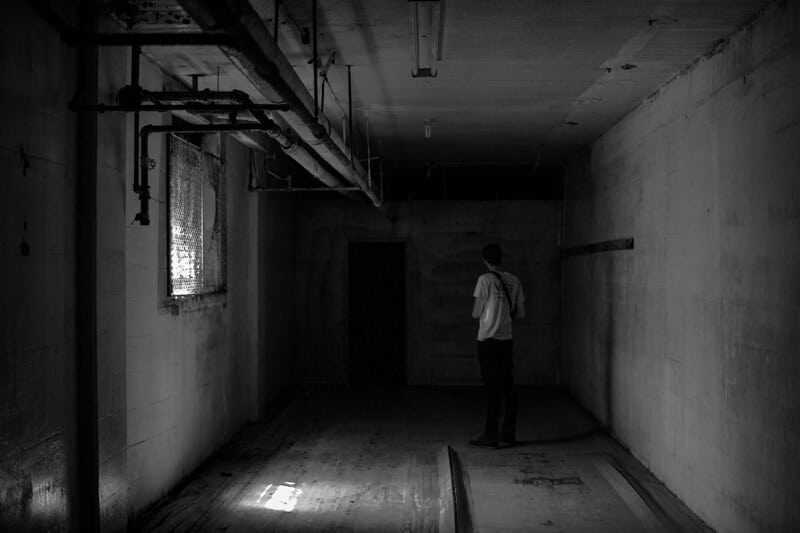A person with a fear of abandonment is likely to struggle with debilitating anxiety that significantly impacts their relationships. This phobia stems from a deep-seated belief that their loved ones will one day leave them behind. In essence, an individual becomes paralyzed by fear, which disrupts their daily lives. Unfortunately, understanding why someone has this fear is challenging as its root causes are complex.
Understanding the Fear of Abandonment
Although the fear of abandonment hasn’t been officially recognized as a phobia, people can still be affected by the anxiety it causes. Researchers suggest that around 10% of U.S. citizens have some type of phobia, with the fear of abandonment being one of the most prevalent. Some research suggests that Utah State residents are most likely to google phobias. Due to its impact on relationships, a person with this phobia may develop maladaptive coping strategies that may lead to this fear becoming a reality.
Those in relationships who have a fear of abandonment may exhibit specific thought patterns and behaviors. For instance, a person may develop an unhealthy attachment to their partners or have commitment issues, impacting their ability to have or maintain long-term relationships. Moreover, they may jump in and out of relationships with people to avoid attachment or adopt people-pleasing behaviors to keep their partners happy even to their own detriment.
Phobia-Influenced Behaviors
Someone’s fear of abandonment may lead them to struggle with intense anxiety, insecurity, or jealousy. Likewise, it may be challenging for an individual to have emotional intimacy as they may have trust or self-esteem issues. These problems could make a person overly critical of themselves, have higher tendencies to self-blame or become hypersensitive to someone else’s criticisms. In some cases, they may have control issues or repressed anger that further disrupts their relationships.
This fear of abandonment can lead to severe consequences if an individual doesn’t get a handle on their issues. As a result, they may not leave a toxic or abusive relationship or they may engage in problematic behaviors like substance abuse or unwanted sex. Furthermore, a person may also deal with anxiety or depression, further exacerbating their phobia and its effects.
Causes of Abandonment Issues
Overall, this fear of abandonment has various causes, making it an extremely challenging phobia to get over. Generally, most psychologists suggest that childhood experiences, conceptual frameworks, and internalized beliefs cause someone to develop this phobia. In fact, children who aren’t given physical affection, safety, or emotional connection are more prone to suffer from intense anxiety. Mainly, they learn to mistrust their permanence and remain skeptical of people’s intentions even in adulthood.
Other experiences such as physical or emotional abuse, losing a loved one, having no genuine support, and actually being abandoned can contribute. Researchers have discovered various potential causes such as past relationship challenges, cognitive or emotional development issues, bad social experiences, and trauma. Moreover, a person can experience one or multiple factors that can shape their perception surrounding relationships and themselves.
Fear of Abandonment in Children

Children rely on their parents or other caregivers to lay the foundation for developing healthy relationships in the future as they’re the first relationships they have. In fact, children who experience neglect or inconsistency may adopt an anxious attachment style, which can make them desperate for relationships despite their fear of abandonment.
Consequently, these children may grow up having serious trust issues that cause challenges in their adulthood. Similarly, a person with a fear of abandonment may be affected by other mental health conditions like borderline personality disorder (BPD). Particularly, BPD is most likely to cause someone to develop a fear of abandonment due to previous trauma or neglect experienced in childhood.
Theory and Mythology
The object relations theory explains that people can maintain emotional connections with others even when physically separated. Psychologist, Jean Piagot, theorized that even small children can learn objects don’t stop existing when they look away from them. This theory, known as the idea of object permanence, aligns with the object relations theory. Typically, children understand separation doesn’t end their relationships by the age of 3, however, traumatic experiences can disrupt their development.
While parental absence can cause this phobia, not all parents leave their children to abandon them. Indeed, children can suffer developmental issues due to their parents leaving for military service or because of busy career schedules. As a result of these absences, these children may grow up with attachment issues or severe anxiety in their relationships too.
Additionally, an individual’s views on mythology may cause their fear of abandonment as its stories of abandoned lovers influenced their beliefs. According to Carl Jung, mythology can shape perceptions and worldviews, resulting in someone internalizing these narratives and archetypes. What’s more? They can believe in myths about themselves, forming from past experiences and their warped subconscience.
Treatment Methods

If a person struggles with a fear of abandonment, they can try several therapeutic methods to help them: play therapy, behavioral therapy, attachment-based therapy, or cognitive behavioral therapy. With these treatments, one can learn to recognize and reframe their negative thoughts to develop healthier relationships.
Besides therapy, a person should build and rely on a community of support rather than a single person. To do this, they should surround themselves with people who share similar passions, interests, or ideas. Learning self-compassion is essential when combating one’s fear of abandonment, so one shouldn’t engage in negative self-talk. Instead, recognition of one’s worth, love, and loyalty is a priority in developing a good self-image.
Final Thoughts
Identifying this fear of abandonment and the issues that accompany it is the first step one must take to heal and grow properly. These individuals should seek support from their family and friends, and if their fear worsens, a mental health professional may get them the help they need. Hopefully, by self-reflecting, they can alleviate their fear and ultimately build and maintain their relationships.
Disclaimer: This article is intended simply to provide information. It does not replace the medical advice of a physician or other medical professional. Please speak with your doctor or therapist if you have any questions or concerns.










